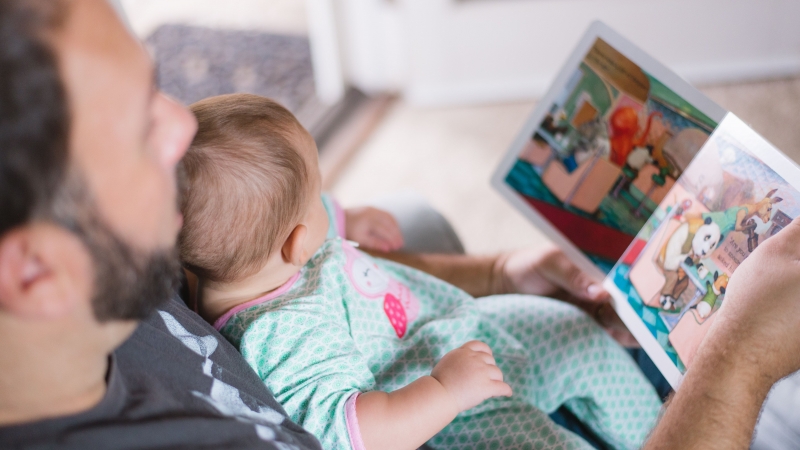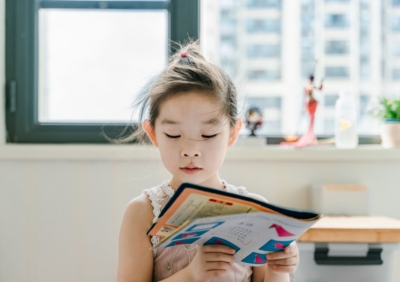Read Aloud Benefits for Children

Think back to when you were a child.What are some favorite memories of childhood? Would those memories involve being curled up on the lap of a parent or grandparent to hear your favorite stories read aloud over and over? Your imagination ran wild as you heard the familiar tales of characters you loved, adventures you dreamed of and more!
As a child, what you weren’t keenly aware of were the less obvious, but tremendously helpful aspects of that continuous and repetitive read aloud time. While you were actively listening to and immersing yourself in the story, a number of things were parallelly happening:
- Vocabulary Development - the more books you read, the more words you are exposing your child to. The more vocabulary they hear, the more they learn!
- Reading Ability Improvement - Children mimic what they hear and see. If you would like to help a struggling early reader improve his ability to read, one thing that can help is reading aloud to him. Let him see you point out the letters, associate its phonetic sound, spell out the words, sound out the words, read the words, string the words into the sentence before you and ultimately read the book aloud in its entirety. Repeat. And repeat again.
- Reading Comprehension Aptitude - as you read and discuss what you’re reading, you are modeling to your child the art of reading comprehension. Make an effort to ask questions about and talk about what you’ve read, helps your child to remember and process what he has heard.
- Imagination Expansion - children’s imaginations are largely shaped by what they hear and see. Taking a trip to your local library and, as a family, selecting new titles to read together encourages your child’s mind to wander, explore and ponder what it is he is hearing as you read to him. Don’t be surprised to find him later acting out with siblings and toys that which you read to him earlier in the day!
- Empathy Development - books introduce us to a variety of characters in a myriad of situations. Children can learn about the emotions of others, how those emotions are processed and how to respond to others in given situations all from listening to the books you read aloud.
- Concentration Improvement - it takes practice and time to sit down and actively listen to a book read aloud. As your child grows, so does their attention span. By reading aloud you can work with your child to practice the art of attending and listening to books of varying lengths. Obviously, a chapter book isn’t the best choice for your toddler! But, if you make your book selections appropriate to your child’s age, your child’s concentration level and the length of time you’re reading aloud should grow proportionately as they age.
- Family Connection Strengthened - reading aloud can be a comfy and cozy time, curled up together, it can be an around the dinner table experience, it can be a tucked into bed under the covers time. However, your family most enjoys that read aloud time is the best way you should do it. All the while knowing that you’re strengthening your bond as a family. You’ll look back on those read aloud times fondly when your children are adults, and hopefully, they will too!
- Lifelong Reader - According to the 1985 report Becoming a Nation of Readers, "the single most important activity for building the knowledge required for eventual success in reading." If you want a child that succeeds at reading, read to them! Read early and read often. Don’t stop reading aloud and you’re bound to end up with a child that loves to read for a lifetime!
Don’t be fooled by the misconception that once a child can read by himself that he no longer needs someone to read to him. Older children reap a lot of the same benefits from reading aloud as younger children do. It’s especially important to continue to have read aloud time as kids grow through ages and stages of development. The familiar practice of reading aloud with family can be a reassurance to older children as the challenges of the world face them.
Remember, the more you read aloud, the more the whole family benefits--children and adults alike. We challenge you to continue reading as a family as long as possible, involving as many generations of your family in the process as you can!
Happy Reading!
Miss Biddle



